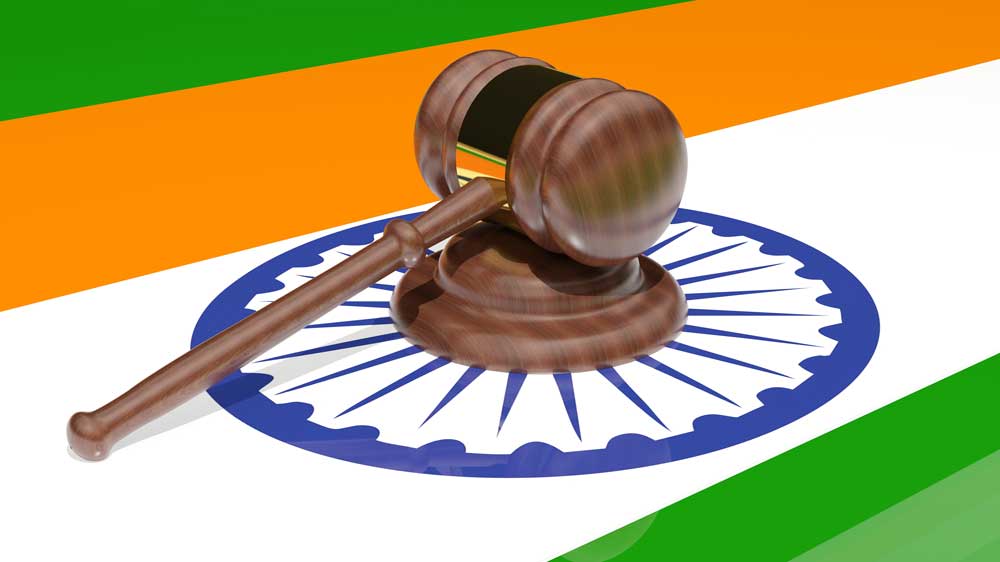
The Supreme Court and High Court of India’s so-called Legal conference, which was held from June 29 to July 1 in Srinagar, can only be termed as an eye wash to pretend democracy and harmony. Facts are totally contrary to ground situation.
The Indian courts’ track record is dismal as thousands of Kashmiri youths, elderly women, human rights defenders, and journalists-including Hurriyat leaders-are imprisoned in Indian jails on fictitious and spurious charges depicting apathy of these courts.
On August 5, 2019, the BJP-led government of India carried out a bloodbath on the disputed region of Jammu and Kashmir in a way that was illegal, undemocratic, and against the constitution, for which the Indian Supreme Court is currently hearing numerous cases with no hope of a positive outcome in line with norms of justice. India, the so called largest democracy of the world, claims to have a strong judicial system that upholds the ideals of justice, equality, and fairness. However, recent events have caused grave worries about how minorities are treated in the the country, particularly in relation to Jammu and Kashmir (IIOJK). The Indian Judges Conference, which is being held in IIOJ&K, is misleadingly regarded an important forum for discussing and resolving these problems, but it is clear that India’s corresponding actions are utterly in contradiction to these steps taken to befool the world.
Conflict and political upheaval have plagued IIOJ&K for many years. Due to the sizeable Muslim community in the area, it is essential to preserve their rights and prevent prejudice against them. Unfortunately, recent government policies in India have unleashed a spree of HRVs and sparked questions about how minorities are treated.
Conflict and political upheaval have plagued IIOJ&K for many years. Due to the sizeable Muslim community in the area, it is essential to preserve their rights and prevent prejudice against them. Unfortunately, recent government policies in India have unleashed a spree of HRVs and sparked questions about how minorities are treated.
In August 2019, the Indian government unilaterally repealed the Indian Constitution’s Article 370, which gave IIOJ&K a special status. In addition to violating the rights of the people, this action also jeopardised their capacity to self-govern. Many viewed it as an undemocratic choice that further marginalised the Muslim majority in the area. After Article 370 was repealed, the Indian government enforced a harsh curfew and a communication blackout in the area. This resulted in a total information blackout and made it difficult for journalists, human rights advocates, and lawyers to do their jobs. A bleak image of the situation is painted by reports of human rights breaches, including as arbitrary arrests, torture, and deaths in custody.
Similarly, laws passed by Indian government disproportionately affect minorities and are discriminatory in nature. For instance, the Citizenship Amendment Act (CAA), which grants citizenship to non-Muslim immigrants from nearby nations, places Muslim immigrants in a vulnerable and unclear position. Such rules have prompted worries of marginalising and depriving millions of Muslims of their rights, especially when combined with the projected National Register of Citizens (NRC).
Along with difficulties encountered by minorities, ongoing violence has plagued the northeastern state of Manipur. The ethnically diverse state of Manipur has long been the scene of armed conflict, rebellion, and state-sponsored violence. Human rights violations, enforced disappearances, and extrajudicial executions have all been documented in Manipur. The Armed personnel (Special Powers) Act (AFSPA), which gives security personnel broad authority, has generated debate because it shields the armed services from prosecution for their actions.
Although the AFSPA was created to suppress insurgency, its application has frequently led to violations of human rights. Concerns regarding Manipur’s culture of impunity and lack of accountability have been expressed by activists and civil society organisations.
It is a question mark that whether Indian Judges will be able to have an objective and fair debate on legal concerns, exchange experiences, and protect the justice system at the Conference. The symposium in IIOJ&K highlights concerns about Indian judges’ commitment to ensuring minorities receive justice, though. The meeting appears to support the government’s unjust policies rather than addressing the issues and breaches of human rights in the area. A good and fair legal system must include independent judges. The conference in IIOJ&K raises questions about the impartiality of Indian judges as they appear to support the official line and ignore the complaints of minorities. The judiciary’s entire foundation is threatened by this lack of independence, which also reduces public confidence. The conference offers judges a great chance to ponder upon and respond to the numerous reports of human rights breaches in IIOJK. However, it seems that these issues are being cynically disregarded, depriving victims of access to justice. Indian judges contribute to a culture of impunity and further marginalise the affected populations by refusing to acknowledge and address these breaches.
The Indian government’s policies and actions, notably in regard to minorities in IIOJ&K in particular and rest of the India in general, raise concerns about the judges’ dedication to upholding these constitutional principles. The meeting had a prospect of objectively reassert their commitment to justice and equality, but political concerns seemed to be taking priority. It is high time that international community rise up to these gimmicks of Modi Government which by no means is in consonance to globally recognised laws and norms of justice.
The writer can be reached at: omayaimen333@gmail.com.
Courtesy by Omay Aimen – Daily Times


















Leave a Reply